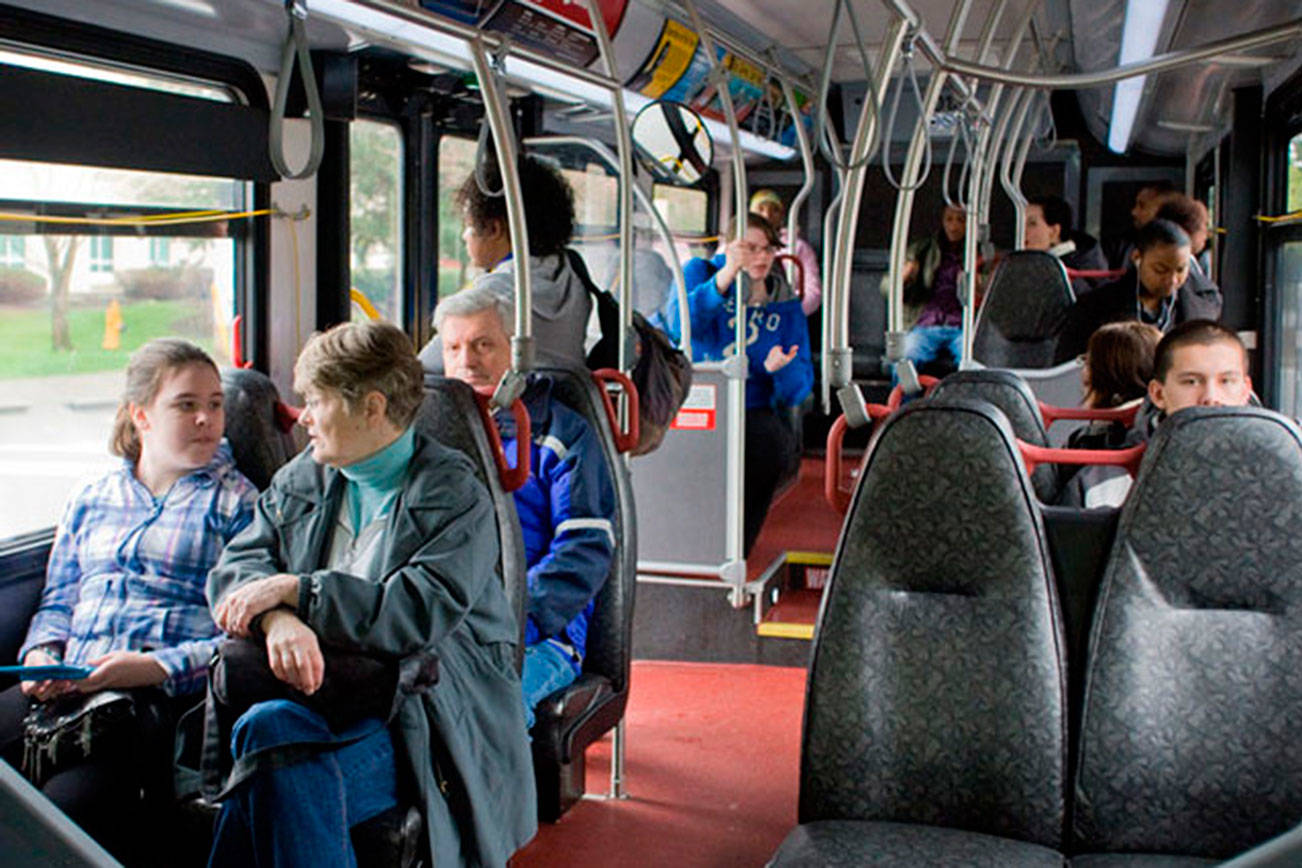Ridership has dropped by three-quarters on King County Metro services countywide amid the COVID-19 pandemic.
The number of daily transit boardings has declined from around 400,000 before the outbreak to roughly 100,000. Metro’s General Manager Rob Gannon said boardings had plateaued following the pandemic and Gov. Jay Inslee’s stay-at-home orders during a May 12 King County Council meeting.
Future ridership is difficult to project and will depend on how safe people feel riding transit — and how the pandemic affects workers commutes.
“Overall we think the system is responding to the crisis,” Gannon said.
Ridership has remained higher in South King County as well as into and out of downtown Seattle.
Metro has implemented a number of measures designed to keep riders safe during the pandemic. These include boarding buses from the rear door, supplying employees with personal protective equipment, limiting the number of seats and waiving fares.
Gannon said it could take up to 18 months to reach pre-pandemic ridership levels, which will affect the budget for years to come.
“The current revenue loss for the year 2020 is significant. It is the combined loss of sales tax revenue, the primary fund of our system, as well as the loss of fare box,” Gannon said.
This fiscal year, the agency is anticipating a loss of up to $260 million. This will be offset by around $240 million of federal aid money from the CARES Act. But it will not be enough to last through the 2021-22 biennial budget. Gannon said financial recovery will be a ‘monumental’ challenge for the agency.
Over the next three years, Metro is facing a nearly $400 million drop in revenue from the pandemic. Several other county funds are taking a hit as businesses remain shuttered and sales tax revenue plummets.
“Unless we get federal support that will help us offset our revenue losses, we are going to be in for a very difficult biennial budget,” the county’s budget director Dwight Dively said at a May 5 Committee of the Whole meeting.
King County Metro joined 14 other major transit agencies from across the country in signing a letter to Congress asking for more funding.
The letter states that federal CARES Act funding, which will distribute $25 billion to transit systems around the country, has stopped immediate worst-case scenarios, but more assistance is needed. Metro agencies serving King County, Sound Transit, Chicago, Los Angeles, Miami, San Francisco and more signed the letter.
Sound Transit is also slated to receive nearly $167 million from the CARES Act. The letter states the agency — which operates Puget Sound’s light rail network — will need more than $628 million in additional funds.
“Federal resources will support us in maintaining our transit networks and keeping projects moving, which will help ensure continued strength of the sizable public transportation-dependent workforce both during and after this national public health emergency,” the letter states.
Other regional transit agencies that received CARES Act funding include Washington State Ferries for about $40 million, along with $38 million for Community Transit and $2.4 million to the city of Seattle.


